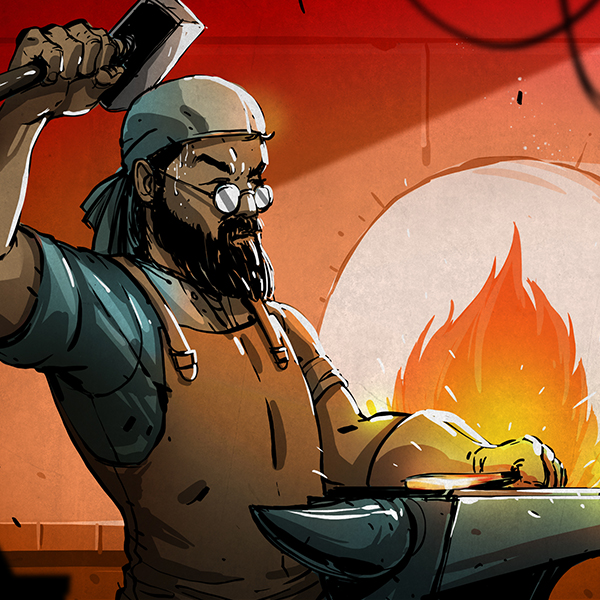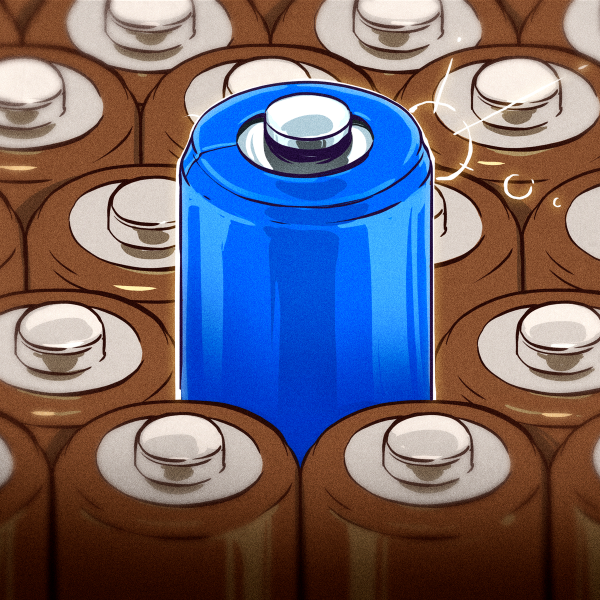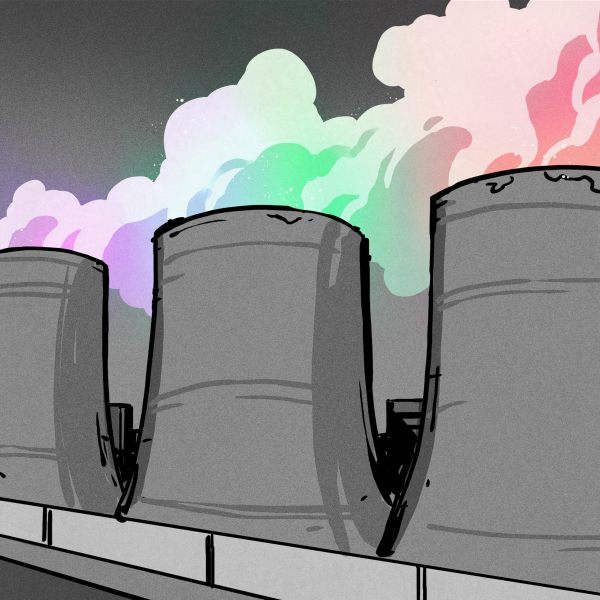When a rainforest is clearcut for agricultural use, we only see the surface problems: fewer trees, destruction of plant and animal habitats, and countless other negative effects on the environment. A lurking problem, however, is that the soil is often non-ideal for farming. When the soil is exhausted, the farmers move further into the rainforest and repeat the process.
In the Amazon, however, there are pockets of man-made soil that are incredibly nutrient-dense. Figuring out how to make this soil, known as Terra Preta, on a massive scale would limit the amount of forest destruction by providing farmers a soil with more longevity which will, in turn, limit the encroachment on the rainforest. That’s the goal of this Hackaday Prize entry by [Leonardo Zuniga]: a pyrolysis chemical reactor that can make this soil by turning organic matter into a type of charcoal that can be incorporated into the soil to make Terra Preta.
As a bonus to making this nutrient-dense soil on a massive scale, this reactor also generates usable energy as a byproduct of processing organic waste, which goes several steps beyond simple soil enrichment. If successful and scalable, this project could result in more efficient farming techniques, greater yields, and, best of all, less damage to the environment and less impact on the rainforests.




















This is so encouraging.
This is both a legitimate traditional and a modern agricultural practice, in fact it has been a routinely used product for at least ten years. http://www.chaotech.com.au/biomass/
It will be interesting to know if the smaller units have similar efficiency values as the larger commercial ones. Anything that is more efficient than the DIY double drum system would be a great thing to have on any farm or home with a large garden.
https://www.youtube.com/watch?v=1s3yevC9cB8
Austin, TX has been making and distributing “Dillo Dirt” for nearly 30 years. It is a blend of treated sludge (i.e., poop) from the water utility and the yard clippings and such collected from homes each week.
https://en.wikipedia.org/wiki/Dillo_Dirt
http://www.austintexas.gov/department/dillo-dirt-uses-and-application-rates
I also meant to point out that Austin’s approach is different. It isn’t burning the waste to make charcoal; it is raising it high enough and long enough that destroys bacteria but what comes out is organic dirt, not charcoal.
Are they able to remove pharmaceuticals from the poop?
Milwaukee produces a fertilizer they call, “Milorganite”
http://www.milorganite.com/
Any organic product which will not contain life at the output of the machine will not be a large scale success…
If it has to treat large areas, it has to provide the bacterial and fungal living systems which are rendering the soil efficient, and most of the time this is not taken into account…
Composting is far more sustainable as when done correctly, it will build on the natural processes that make those living systems grow and prosper, and any other mean will only be a sterile environment compared to a system which will automatically connect to a seed when it germinates to optimize exchanges and exert mutual benefits…
This is called aggradation and it is the basic principle of natural living processes.
so fertilizer is not a large scale success? Or bread, or any other cooked food?
Perhaps that mumbo jumbo you spouted sounds truish to you, but when you take away the belief systems you are left with very little provable fact. It is called science and it is the basic principle of spreading and refining knowledge.
it’s not “mumbo jumbo”, it is fact!
garbage products like “roundup” kill soil mycelium and soil bacteria, which leads to growers being dependent on chemical fertilisers.
plants and fungi evolved together over millions of years, when big mining talks about “site remediation” it’s a joke.
there is a lot more to a soil ecosystem than most folks realise
Composting is great but it’s just not economic at the large scale (mostly an infrastructure problem). Gone are the days when the honey wagon would roll through the back 40. It may be different in the slash & burn regions of the amazon, but even chemical fertilizer can’t compete with just moving on every couple years.
No till or low till with artificial fertilizer still comes out ahead of composing in areas that have the access.
That’s not to say the costs are the same but season to season fertilizer is cheaper than building productive soil. Mega farms can’t afford to be concerned with 50 years down the road, though maybe they should be.
The concept of ‘moving on’ sounds similar to the age old practice of ‘crop rotation’, where farmers would switch the crop grown on each field (sometimes just having grass for animlas), which would avoid exhausting the soil:
https://en.wikipedia.org/wiki/Crop_rotation
I agree that composting is oftentimes not economic when compared to other more short-term methods, depending on the availability of compostible material, but I would reckon it would be a lot more economic than the ‘pyrolysis’ method mentioned in this post, which presumably uses quite a lot of energy.
Most discussion of composting talks about turning it, etc. This site describes how to compost, and all you have to do is keep it properly watered.
https://www.humanurehandbook.com/
Includes many references, and discussion of denaturing poisons and killing
…er, pathogens.
please supply the sources for your factiod. A herbicide that kills fungi and bacteria? That’s extraordinary, how extraordinary is your proof?
As for mumbo jumbo, I think it includes pulling in unrelated topics like mine site remediation. To remind you, the topic is biochar,which ‘Shrad’ argued is not good because it is sterile, he prefers composting because of mumbo jumbo.
lol
I have a friend that takes broiler shed waste litter, grape mark, seaweed, inoculates it with mycelium and bacterial culture, composts the mix at around 75 – 80C.
he then sells the compost back to vineyards that have been infested with phyloxera, which is a mite that infests grape vines and gives wine a musty taste.
mites flourish in the absence of anaerobic soil bacteria, which roundup has been proven to kill.
after a few decades of use, we now know that glyphosate is persistent and present in stock animals as well as humans.
charcoal is great for binding nitrogen, on the turkey farm we used to make a lot of charcoal during winter to add to the “bio-bin”, which was a great big sealed bin full of rotting turkeys.
I grow stuff to eat, my vegetables and fruits are so “organic” I can sell them to the hippy fruit and veg shop.
there are heaps of references on the benefits of soil organisms, mainly in increasing crop yield.
So called bio char is useful enough but if you don’t inoculate it with nutrients it acts as a sink for the foray season or so, in northern latitudes huegelkulture is used as an alternative or in addition to biochar.
If farmers don’t rotate crops and don’t have petrochemical fertilizer available, it doesn’t matter what system you use, you will deplete the soil. Rather than relying on monoculture, a polyculture (ideally in a food forest/permaculture design but you run into money problems quickly as you scale) or crop rotation will provide more yield.
true, charcoal does provide very few nutrients by itself and all the valuable nitrogen will have been burned off in the process.
I doubt that producing the char is the bottleneck of the whole process, I suspect it is just an excuse to play with fire (which is ok).